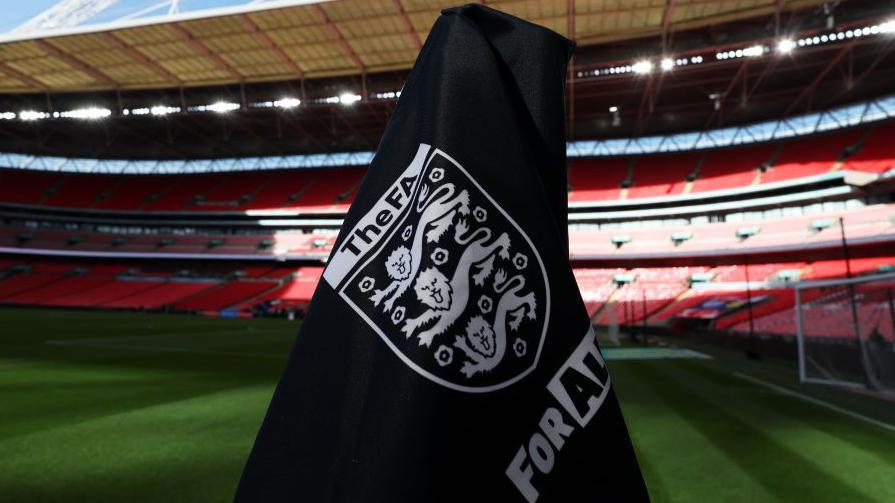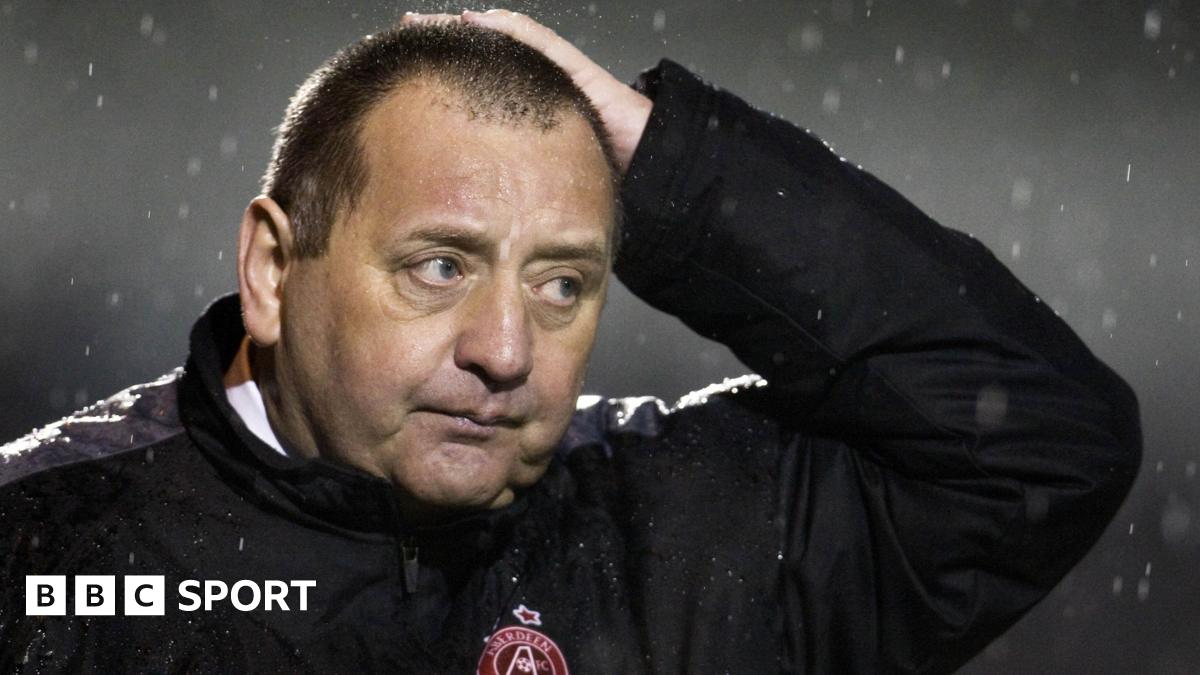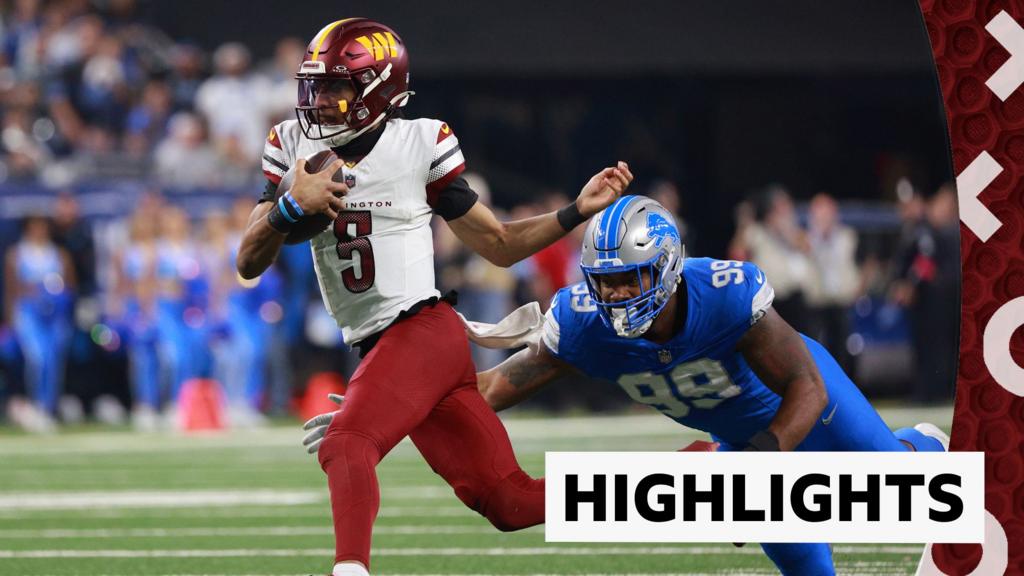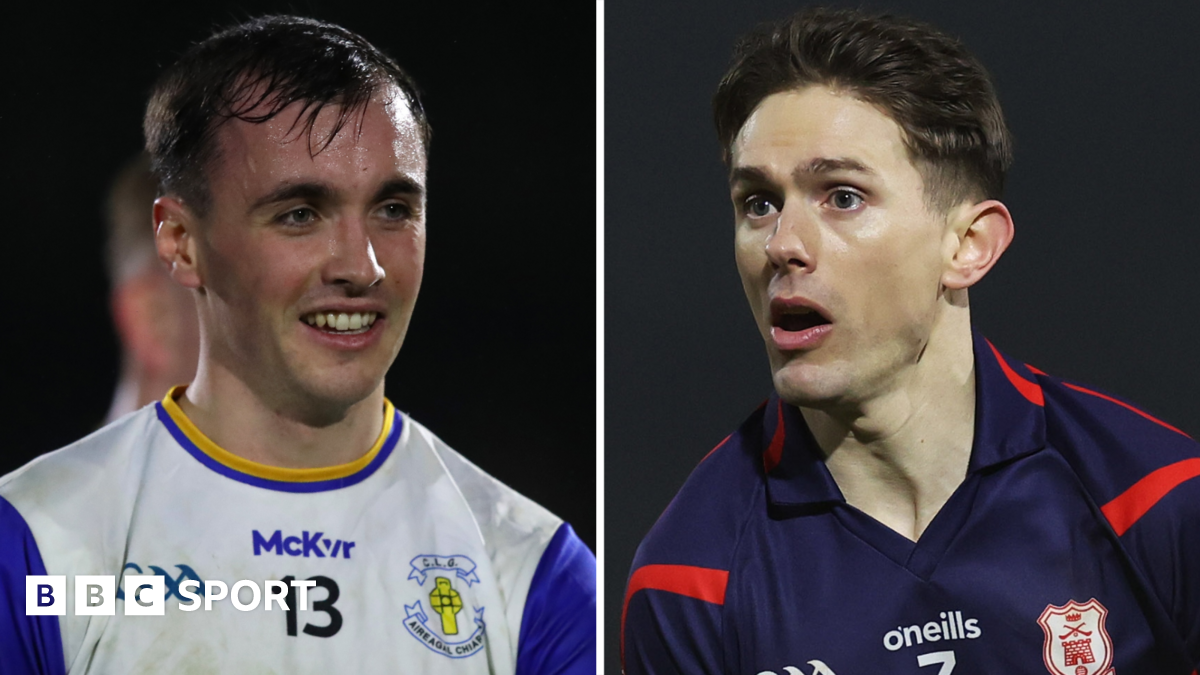ARTICLE AD BOX
 Image source, Getty Images
Image source, Getty Images
A protest over the Football Association's transgender inclusion policy took place outside Wembley before England men's match against the Republic of Ireland.
It was sparked by the banning of a teenage girl over remarks she made to a transgender opponent in a grassroots match.
So what is the background to what the FA calls "a complex case"?
Earlier this month, a 17-year-old female footballer was banned for discrimination after she was found to have repeatedly asked a transgender opponent during a match "are you a man?".
Anti-discrimination organisation Kick It Out had reported the girl to the FA and the case was considered by an FA national serious case panel, which adjudicates on disciplinary matters in grassroots football.
The FA acted as gender reassignment is a protected characteristic under the Equality Act 2010.
The BBC has not seen the FA's ruling, but it has been reported, external that the 17-year-old had denied being transphobic, had concerns about her safety and had sought guidance from the referee over the eligibility of her trans opponent.
The teenager, who has not been named because of her age, was banned by the panel for six matches, four of which were suspended.
What do the protesters say?
On Sunday an estimated 100 protesters from a group called Twelve O Five staged a demonstration at Wembley, with banners demanding "no men in women's sport" and "save women's sport".
Accusing the FA of "cowardice", one protester told BBC Sport: "It's a basic fairness and safety issue. This is a contact sport and those male players that have been through male puberty, they've got physical advantage. It's not just the unfairness of a biologically male player taking the spot that would've been taken by a female player otherwise."
What was the reaction?
Following media coverage of the issue former FA chairman Lord Triesman raised the issue at the House of Lords on Wednesday. Reflecting on his time at the governing body, he said: "On one occasion, and at my instigation, there was discussion about whether people who were born men should play post-puberty against people who were born women."
"In my day, the issue was straightforward. It was clear that it tended to produce an unfair competition and a very significant number of serious injuries. It led us to banning those kinds of competitions because of those reasons - no other reasons.
"I say with regret: shame on the Lancashire County Football Association, backed up by the FA itself. She seems to me to have been treated in a shabby way, and I do not intend to let it rest."
Kick It Out, who the BBC has approached for comment, has an equality policy, external through which it aims to ensure "that fans, players, staff and others are treated fairly and with respect".
"Kick It Out is continually committed to promoting inclusion and to confronting and eliminating discrimination," the group's policy states.
What does the FA say?
In response to the criticism, the FA said: "We understand that this is a complex matter, and we are very aware and respectful of strong views on all sides. This particular case was heard by an independent national serious case panel, and they issued a sanction for a breach of FA rules.
"However, considering the ongoing public discussion - which has included some inaccurate information - it is important to note that the sanction was for two matches only, with an additional four matches suspended. If the details of the case had been limited to those currently in the public domain, it is highly likely that no sanction would have been issued at all.
"We have said previously that this is a complex case, all the facts are not in the public domain, and we are unable to publish more detail due to the age of one of the people involved."
What is the FA's transgender policy?
The case has highlighted the FA's policy of allowing players who are biologically male, but identify as female aged 16 or older, to play in the women's game.
In its rules, the FA says it has "undergone a review of its policy on transgender players in line with its commitment to promote Football for Everyone. It is the FA's firm view that gender identity should not be a barrier to participation in football which is governed by the FA."
However, it also recognises: "Football is a gender-affected sport of a competitive nature where the physical strength, stamina or physique of average persons of one sex could put them at a disadvantage compared to average persons of the other sex as competitors in a football match.
"English law provides that because of this, separate sporting competitions can be organised for men and women. The general position is that the participation of trans people in competitive sports cannot be restricted unless it is strictly necessary to pursue a legitimate aim, namely securing fair competition and safety of other competitors."
The FA rules note: "Gender reassignment is one of nine protected characteristics under the Equality Act 2010, and as such transsexual people are protected against discrimination."
Its policy is based on a testosterone suppression model, and the FA have the ultimate discretion as to whether a transgender woman can register or not, on a case-by-case basis. Testosterone levels must be "within natal female range... for an appropriate length of time so as to minimise any potential advantage", and hormone treatment must be verified annually.
"If a trans person has not undergone or is not undergoing hormone therapy or gonadectomy, the FA will consider their application taking into consideration the two requirements to ensure the applicant's and fellow players' safety and fair competition. The FA will consider the evidence on a case-by-case basis."
In a statement, the FA told the BBC: "We have a transgender policy in place that has helped to enable a very small population of transgender women to enjoy playing football in the grassroots game, and we will continue to provide this support on a case-by-case basis.
"We understand that this issue is complex and constantly evolving, and our transgender policy for English football will remain under review to ensure it can balance safety, fairness and inclusion across the full breadth of our game."
How many transgender women are playing in England?
BBC Sport has been told over the past decade there have been about 70 transgender footballers among the many millions of players who take part in the grassroots game on a weekly basis. We cannot verify the exact number as the register of players in this category is confidential.
There are no transgender women playing in professional football in the English game, nor in any of the home nations.
However the FA has come under pressure to change its policy.
Earlier this year the previous government held a summit with several major sporting bodies, including the FA, and called on them to take an "unambiguous position" to ban transgender athletes from competing in female-only events.
The then culture secretary Lucy Frazer said: "I think it's very important that women are able to compete against women and there's an inherent unfairness, that if you're not biologically a woman, you have a competitive advantage."
The FA is keeping its policy under review, but it feels that there is no new scientific research that would require it to change. It is also waiting for both Fifa and Uefa to finalise reviews of their policies before making any amendments. Fifa has said it has an internal working group exploring the issue, calling it a "work in progress", and adding that it wants the game to be "safe and inclusive".
What other cases have there been?
Last year the FA said it was "working to find a resolution" with Sheffield & Hallamshire County FA after a transgender player quit the sport when rival clubs refused to take part against her. Four teams reportedly withdrew from matches after a shot by the transgender player injured an opponent. The transgender player said she was considering pursuing "a case of discrimination" over "a breach of the code of conduct regarding diversity and inclusion, as well as safeguarding of adults in football".
In September there was controversy after Sutton United's women's team postponed a fixture against Ebbsfleet United in the fifth tier of the women's game "through an abundance of caution" following the club's signing of a transgender player. Reports claimed some of the transgender player's team-mates did not want to take part alongside her, but the BBC has not been able to verify this.
Sutton told the BBC that "a lot of misinformation has been spread" and that officials "thought it was best to postpone the game to check on the legalities around the situation, and in order to avoid negative attention and hate".
What about other sports?
In recent years, the governing bodies of several other sports, including athletics, cycling and swimming have tightened their participation rules, banning transgender athletes in elite women's competitions. Last month the England and Wales Cricket Board (ECB) became the latest, ruling that any player who has gone through male puberty will be ineligible from the top two tiers of the women's game from 2025.
However, as with other sports that have applied similar policies, the new regulations will only apply to the top of the sport. Transgender women will be eligible to play in tier three of the domestic structure, which comprises traditionally lower-level counties, and in recreational cricket.
The ECB said this "strikes an appropriate balance by ensuring fairness in the elite game while ensuring inclusivity at a recreational level". But critics say such a two-tier policy is unfair on the majority of women who play cricket - in the amateur game.

 2 months ago
10
2 months ago
10








 English (US) ·
English (US) ·